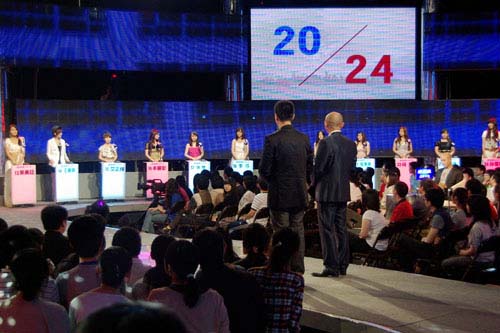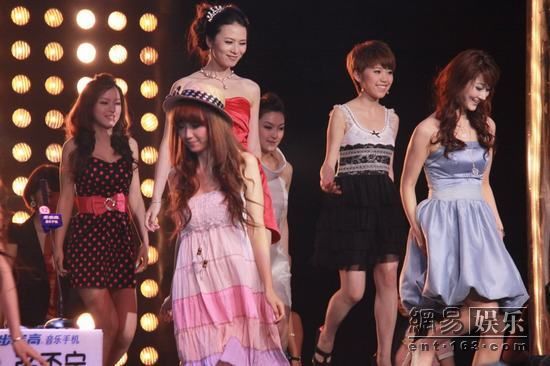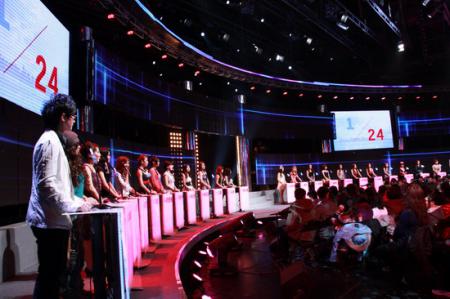Serendip is an independent site partnering with faculty at multiple colleges and universities around the world. Happy exploring!
Critical Feminist Studies Web Paper 1

The Outsiders' Society and Freaks
Virginia Woolf calls every woman to join a society that is separate from the society in which men operate – the Outsiders’ Society. She says that we cannot operate within the society of men, because there is “something in the conglomeration of people into societies that releases what is most selfish and violent, least rational and humane in the individuals…” (124). The Outsiders’ Society, Woolf states, is “the kind of society which the daughters of educated men might found and join outside your society but in co-operation with its ends” (126). She indicates that there is power in being outside of the insiders’ society: “the power to change and the power to grow… can only be preserved by obscurity…” (135). Existing and working in this Outsiders’ Society will give women power by obscuring them and separating them from the “limelight which paralyzes the free action of the human faculties and inhibits the human power to change and create…” (135). Virginia Woolf believes that being outside of men’s society will “shroud” women “in darkness.”
Last semester I took a course entitled “Reading Popular Culture: Freaks” with Suzanne Schneider, in which we discussed at length what it means to me marginal and why people in the so-called “Outsiders’ Society” are put there in the first place. The idea of existing outside of society according to what we discussed in Freaks is very different from what Virginia Woolf seems to think about being an “outsider.”

Dating Game Shows and Feminism in China


If you watch Chinese TV these days, you must be familiar with If You Are the One (Fei Cheng Wu Rao), the most successful TV show in China. Accompanied by fancy lighting and popular music, twenty-four single attractive women line up on a stage and are presented to a male candidate. The candidate introduces himself, including his occupation, interests, and love history with a few video clips, and answers questions from the ladies onstage. During his introduction, the ladies press a button to turn off the light in front of them (followed by a sound cue) if they find the gentleman not “date-worthy”. After three rounds of interaction, if there are girls keeping the light on for the candidate, and if he likes one of them, he succeeds in the match. But if all twenty-four lights go off, the male loses


Girl Scouts and Feminism
February 3rd, 2012
Girl Scouts and Feminism
When I was seven, I joined the Girl Scouts. I wanted to be a part of the seemingly exclusive group that my friends bragged about, and do fun things like play games and go camping. When my parents signed me up and I went to my first Brownie meeting, I was excited. Unfortunately, the troop leader—one of my friends’ moms—only had a few arts and crafts and a boring activity. After the activity, she usually sent us out to the playground, which is where I learned the “exclusive” Girl Scout traditions of jump rope songs and hand games like “Miss Susie Had A Steamboat,” just like my mom had learned when she was a girl scout.
The Girl Scouts of America is a youth organization for girls in the United States and abroad that was formed in 1912 by Juliette “Daisy” Gordon Low in Savannah, Georgia. She assembled the first 18 scouts because “she believed that all girls should be given the opportunity to develop physically, mentally, and spiritually.” Their activities included hiking, basketball, camping trips, first aid and learning to tell time by the stars. Daisy Gordon Low wanted to enable girls to leave their restrictive home environments to perform community service and play games.
A Dinner Table: Eggs
At the beginning of this class we were shown The Dinner Party by Judy Chicago, an art display immortalizing women Chicago thought were the most influential to the feminist movement. I felt there were many problems with this kind of depiction, but after reading Three Guineas I felt an even greater negative reaction to it. Chicago's Woolfe plate made Virginia Woolfe seem like the climax of a great tradition of feminist thought- not an evolution in the scientific sense of the word, but a slow build up to a lauded, supposed-perfect feminist. And not just any kind of feminist, but a feminist explicitly defined by and given such status by her [white] ciswoman body. This hardly felt appropriate to me. Virginia Woolfe's writings exclude more than they embrace, and attempt to instruct women what they should do with themselves (to be what, precisely?) in a way that can be especially harmful. Why should she remain such an iconic representation of feminism when feminism as a movement, as a word, as a lifestyle and perception has moved beyond what she imagined or, maybe more importanty, deemed appropriate? There are, however, pieces of Three Guineas that I believe can still be found useful. So what is Virginia Woolfe now? Who is she meant to be to us?
I've thought about that, and I've come up with my own imagining of The Dinner Party. I consider this an initial draft of what it will become, and have many ideas for its next incarnations.

The Inside: History of women at Bryn Mawr College
In a class on gender and sexuality last semester, I focused my attention on transgender students at Bryn Mawr, and those that haven't been able to come to Bryn Mawr College because of their sex. Throughout the semester I met with administrators, deans, staff and students around campus trying to learn more about the school's policy on admitting transwomen as well as transmen. Following are the links to these works.
1) All "Women's" College
2) Moving towards a right relationship between Bryn Mawr
College and Transgender Students

Dinner Parties that Turn into Orgies
I started out with questions about porn: Can porn ever be feminist? If so, what makes it feminist? Is kink contrary to feminism?
After reading MacKinnon, however, I realized that this was turning into a conversation about feminism and BDSM/kink, not just porn.

Pro-Life Feminist: An Oxymoron?
I thought I understood feminism in its most basic of terms upon deciding to enroll in this course. Now, after having attended the handful of classes held so far, I know that there is no simple way to describe such a word, such a movement. I had imagined my basis of feminist understanding as rather commonplace. Having a mother and aunt who were supporters of Planned Parenthood throughout their early adult lives and onward, I too came to learn about what the organization supported and the importance of standing up for my rights and recognizing that they should be equal to the rights of men.
This past October, Planned Parenthood turned 95 years old. It has spent that time “promoting a commonsense approach to women’s health and well-being, based on respect for each individual’s right to make informed, independent decisions about health, sex, and family planning.” An organization in sharp contrast, Feminists for Life, was established in 1972 and has spent its time "shaping the core feminist values of justice, nondiscrimination, and nonviolence” and does not take a stance on “pre-conception” issues. Maintaining a focus on college campuses, the group pushes against movements like Planned Parenthood that offer abortion, their coin phrase “women deserve better than abortion.”

Does Supermom Exist?
"But above all she must press for a wage to be paid by the State legally to the mothers of educated men. The importance of this to our common fight is immeasurable; for it is the most effective way in which we can ensure that the large and very honourable class of married women shall have a mind and a will of their own, with which, if his mind and will are good in her eyes, to support her husband, if bad to resist him, in any case to cease to be ‘his woman’ and to be her self."
When reading “Three Guineas,” this passage gave me pause to think about what Virginia Woolf was saying about motherhood. She argues that motherhood should be viewed as a profession and also treated like one by granting wages to those who are mothers in order for all women to achieve financial independence. I started thinking about this concept of defining motherhood as a career, and I don’t think it’s an accurate definition today. Some women are mothers who don’t work, some women are non-mothers who work, and some do both; all are perfectly valid options, but I wanted to focus on the issues facing the working mother. Many women in academia have fewer children than they want or have slowed down their careers in order to raise their children. The major questions I had were how do women balance parenthood with a career, why is the share of work in parenting still so unequal, and why is academia specifically so incompatible with raising a family?



